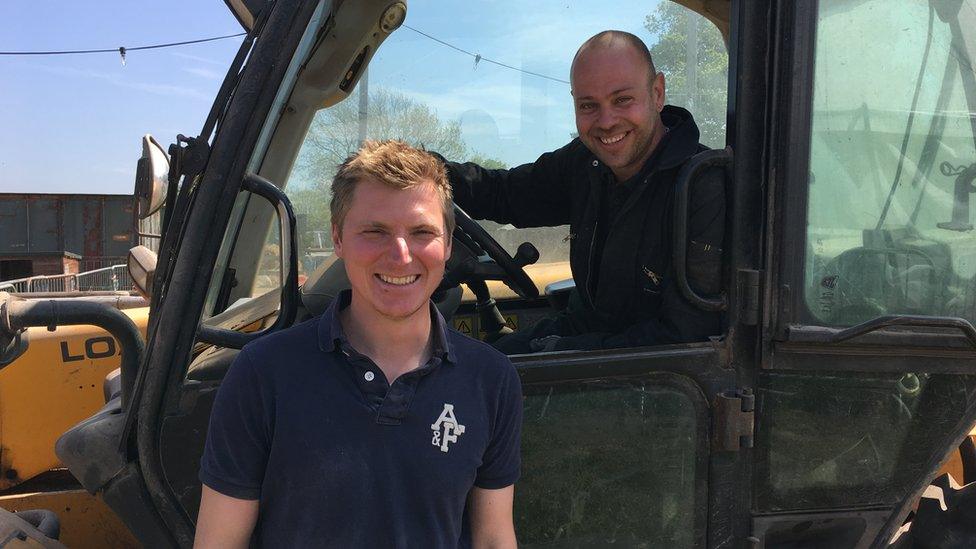Flood-affected farmer writes off £15k of crops
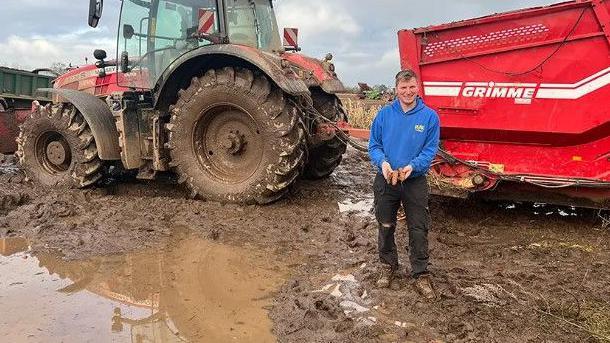
Richard Bower says his family farm has flooded five times this winter
- Published
A farmer from Staffordshire has said he has written off about £15,000 worth of crops as a result of recent wet weather.
Richard Bower, from Lower Drayton Farm in Penkridge, said February had already seen more than twice the usual rainfall, despite there still being a week to go until the end of the month.
“It just hasn’t stopped raining unfortunately, it’s been quite relentless,” he said.
Mr Bower said he had recorded 93mm (3.7in) of rainfall already in February – with the average for the month being 41mm (1.6in).
As a result, Mr Bower’s family farm is "absolutely saturated", he said, adding it had flooded five times this winter.
It has also led to challenges with the usual routine of the farm.
“We’re lambing at the moment. Usually as soon as the lambs are born we try to get them outside as soon as we can, but at the moment we’ve only let four lambs outside and they look very wet and very muddy.
“As well as that we’ve still got 10 acres that need to be harvested but it’s too wet.”
He said his family had only managed to plant about 80% of the crops that had been planned, and some of those had failed due to the excessive rainfall.
Mr Bower estimates it will be mid-March before they can do any additional planting, which will mean a reduction in yield.
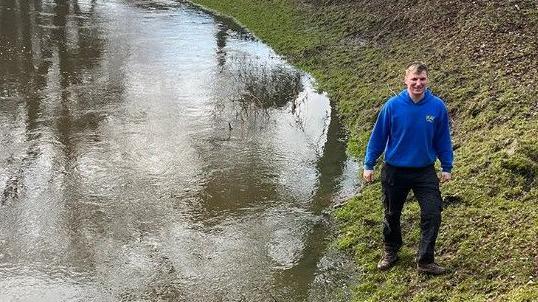
Mr Bower told the BBC he had written off about £15,000 worth of crops due to recent wet weather
He said crop failure had forced him to write off thousands of pounds worth of plants.
“We’re basically going to have to draw a line under that and start again with another crop,” he said.
He joined his father on the farm full-time when he returned from university in 2011, but his family has owned the farm since 1982.
In his experience, extreme weather events are becoming more frequent and dealing with this has brought added expense.
"Because it’s so wet, all the animals are in the barn," he said.
"It costs more to keep them indoors - with straw and feed – and that means there are increased costs."
'Farmers are resilient'
Despite this, Mr Bower is determined to do what he can to preserve his livelihood.
"Farmers are a resilient bunch, the weather affects everything we do," he said.
"We always try to stay positive and be patient. We spread our risk, and rotate things around the farm.
"We’re probably going to plant more environmental crops than food crops this year – and we’ll rest the fields to let them recover after this deluge."
He said farmers were experiencing climate change first-hand and doing what they could do to adapt.
Follow BBC West Midlands on Facebook, external, X, external, and Instagram, external. Send your story ideas to: newsonline.westmidlands@bbc.co.uk, external
Related topics
Related stories
- Published5 January 2024
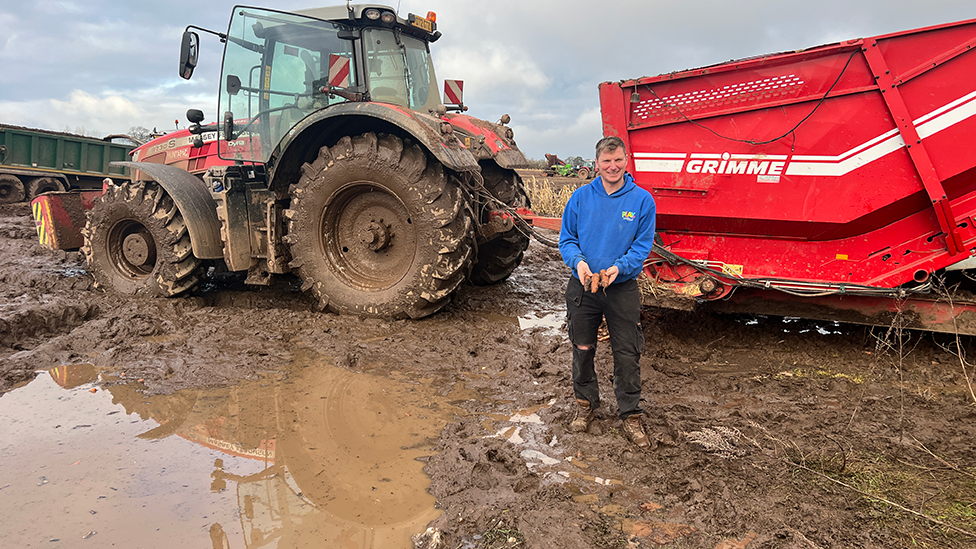
- Published9 March 2023
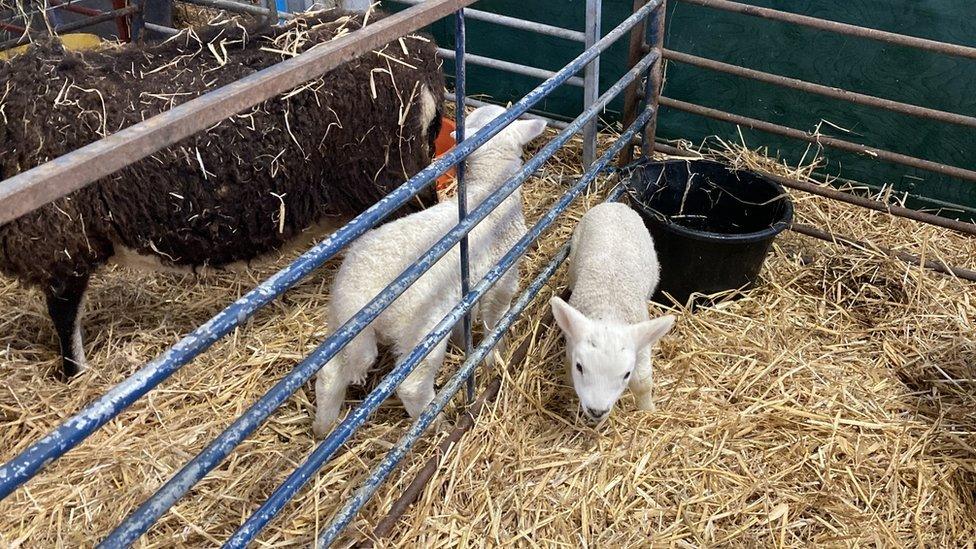
- Published25 May 2017
